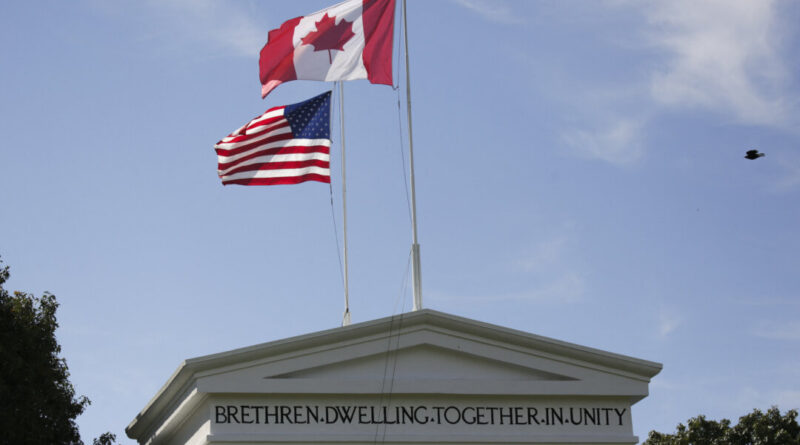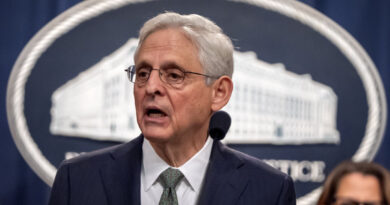Northeast Governors Invite Canadian Officials to Boston for Talks on U.S. Tariffs
Six U.S. governors are striving to maintain cross-border trade with Canada as costs rise and tensions escalate over U.S. tariffs.
Massachusetts Gov. Maura Healey, along with the governors from Maine, New York, Connecticut, Rhode Island, and Vermont, issued the invitation on May 5.
The letter was sent to the premiers of Ontario, Québec, New Brunswick, Newfoundland and Labrador, Nova Scotia, and Prince Edward Island.
“We are acutely aware of the ramifications these tariffs impose on individuals on both sides of the border. Businesses, both large and small, that provide employment in the U.S. and Canada are already experiencing significant challenges due to the trade conflicts, which are driving up costs for our communities and enterprises,” the governors articulated.
Commerce Secretary Howard Lutnick commended the actions Canada and Mexico have taken on March 3 to limit illegal immigration but called for more efforts against the movement of fentanyl.
“There’s more to be done regarding fentanyl,” Lutnick remarked.
Another primary objective of the president’s tariffs is to reshore U.S. manufacturing and revitalize the nation’s industrial foundation.
The governors’ proposed meeting in Boston would bring together U.S. and Canadian leaders to explore strategies for economic stabilization and the preservation of long-standing cross-border relationships, according to the letter. The governors indicated they would follow up to discuss schedule availability for the meeting.
In a press release announcing the formal invitation, Healey stated, “Canada is Massachusetts’ top trading partner.”
“For generations, we have fostered a robust partnership with healthy exchanges of energy, lumber, dairy, automobiles, and seafood. All our residents and businesses benefit from this connection.”
Healey expressed concerns that the tariffs are undermining this partnership and complicating business operations while raising costs in both Canada and New England.
Other governors shared these apprehensions.
“Canada is the largest trading partner for Maine, with over $6 billion in cross-border trade last year alone,” stated Maine Gov. Janet Mills. “Our economies and cultures have enjoyed strong ties for generations, now threatened by the president’s erratic tariffs and damaging rhetoric aimed at our northern neighbors.”
New York Gov. Kathy Hochul labeled the tariffs as “the largest tax hike in American history,” noting they have been “devastating for small businesses, family farms, and local manufacturers.”
Connecticut Gov. Ned Lamont emphasized that the relationship with Canada is essential “for numerous small and large businesses,” while Rhode Island Gov. Dan McKee mentioned it is “critical we unite to safeguard the jobs and industries reliant on strong and stable U.S.-Canada ties.”
Vermont Gov. Phil Scott, the only Republican among the six, stated, “Engaging in a trade war with our closest allies, our largest trading partner, seems like a misguided strategy.”
The governors reaffirmed that their cross-border connections are deeply rooted in common history and economic necessity. “Our relationship is treasured, founded not just on financial advantages but also on long-standing familial and cultural ties that transcend politics,” they conveyed in the letter.
The White House did not respond to The Epoch Times’ request for comments regarding the governors’ invitation before publication.
The administration pointed out that the U.S. faces an annual $1.2 trillion trade deficit—the largest in U.S. history.
Jackson Richman contributed to this article.





